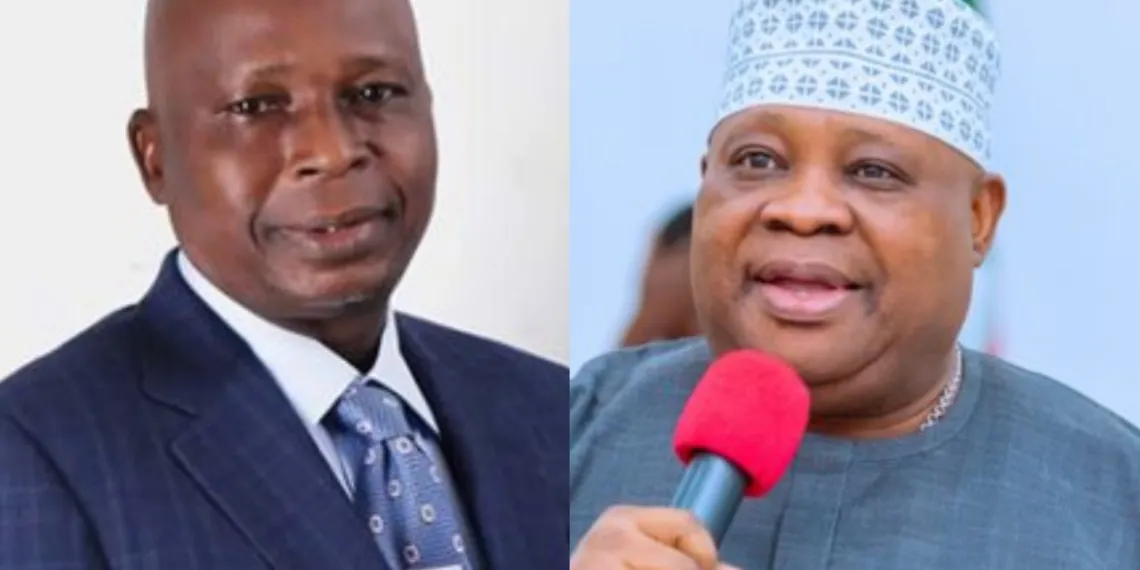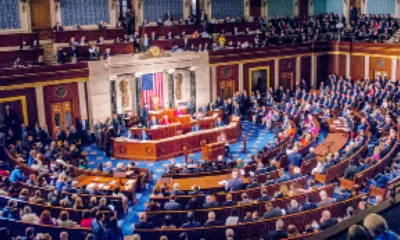News
Supreme Court reserves judgement in suit over Osun’s withheld local govt allocations

The Supreme Court on Tuesday reserved judgement in a case filed by the Osun Stare Government over the withheld allocations due to its 30 local government areas.
The court reserved the judgement after taking arguments from the lawyers to the parties to the suit.
Musbau Adetunbi, a Senior Advocate of Nigeria (SAN), represented the Osun State Government, and Akin Olujinmi, also a SAN, represented the the Attorney-General of the Federation (AGF), Lateef Fagbemi (SAN) sued as the respondent.
Uwani Aba-Aji, who led the Supreme Court’s seven-member panel of justices that heard the matter, said the date to deliver the judgement would be communicated to all parties.
The state government had filed the suit against the Attorney-General of the Federation over the federal government’s withholding of the statutory allocations due to its 30 local governments since March 2025.
The News Agency of Nigeria (NAN) recalls that the state government had filed an application to withdraw an earlier one filed against the AGF on the subject matter.
In the originating summons, the state urged the Supreme Court to compel the federal government to release all seized funds and to stop what it described as “an unconstitutional and arbitrary seizure” of local government revenues.
He argued that the AGF had ignored subsisting judgements of the Federal High Court, Osogbo, delivered on 30 November 2022 and the Court of Appeal (13 June 2025), which he claimed affirmed the legitimacy of council chairmen and councillors elected on Feb. 22.
The state said the AGF, in a 26 March 2025 letter had advised that the funds be withheld pending resolution of the local government leadership crisis in the state.
It maintained that the appeal court ruling had already settled the matter, nullifying the October 2022 polls conducted under the previous administration.
Among the 10 prayers sought by the Osun State Government is a declaration that the AGF lacked constitutional power to seize local government funds, that his actions contravene valid court judgments.
It also prayed that all withheld allocations be released directly into the accounts of the local government’s headed by duly elected officials. It also sought a perpetual injunction restraining future seizures.
It claimed that the seizure, suspension, withholding and/or refusal to pay the allocations and revenues due to the constituent local governments of the plaintiff state is unconstitutional, unlawful, wrongful and ultra vires the powers of the defendant.
The state also raised five issues for the Supreme Court’s determination, including whether the AGF is constitutionally bound under Section 287 of the Nigerian Constitution to enforce the rulings of the Federal High Court and the Court of Appeal, and whether his March 26, 2025 directive to withhold funds can stand in the face of the appellate judgment.
The state had also simultaneously filed another suit at the Federal High Court, Osogbo, challenging the Chief Judge’s decision to transfer an earlier case on the local government funds from Osogbo to Abuja for hearing by a vacation judge.
The state government described the federal fovernment’s actions as “an affront to the rule of law,” insisting that only the Supreme Court could conclusively resolve the constitutional issues. He cited precedents such as A.G. Kano State v. A.G. Federation (2007) and RMAFC v. A.G. Rivers State (2023).
The state government argued that the AGF was wrong in his letter recognising APC local government chairmen when the matter was pending before court of records.
It also predicated its case on the ground that the election that brought in the APC officials as Local Government chairmen and Councillors had been nullified by a Federal High Court and upheld by the Court of Appeal in Abuja.
However, in opposition, the AGF represented by Akin Olujimi SAN argued a preliminary objection where he urged the Supreme Court to dismiss the case of the plaintiff on various grounds.
Among others, Mr Olujinmi argued that the plaintiff lacked locus standi (legal power) to bring the case before the Supreme Court to invoke the original jurisdiction because the matter is between two political parties.
(NAN)
-

 Business17 hours ago
Business17 hours agoDangote Refinery to Supply 65m Litres of Petrol Daily
-

 Metro15 hours ago
Metro15 hours agoCourt ruling didn’t exempt states – Group tells Lagos AG over VIO activities
-

 News17 hours ago
News17 hours agoFG Rejects US Congressmen’s Stance On ‘Religious Persecution’
-

 Politics17 hours ago
Politics17 hours agoObi, Oyegun, Other ADC Chieftains Attacked In Edo
-

 News17 hours ago
News17 hours agoAlleged UK property fraud: Ozekhome faces 12 fresh charges
-

 Politics15 hours ago
Politics15 hours ago‘A stain on democracy’ — ADC condemns attack on Obi, party chieftains in Edo
-

 News17 hours ago
News17 hours agoPROFILES: The DIGs Who May Be Affected By Disu’s Appointment
-

 News15 hours ago
News15 hours agoUS Push To Scrap Sharia Sparks Outrage


















